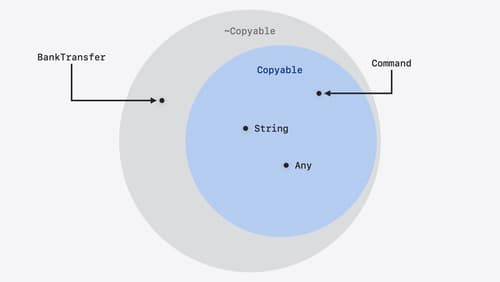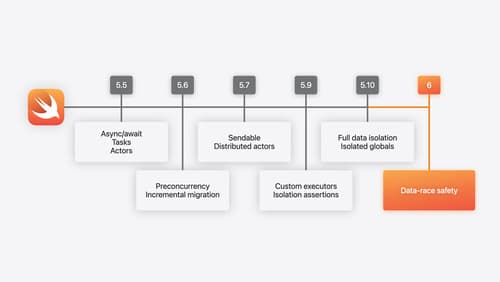Replicated file provider
Asked on 2024-08-06
1 search
The concept of a replicated file provider isn't directly mentioned in the provided context. However, the sessions related to creating custom data stores with SwiftData might be relevant if you are looking to implement a custom data store that could potentially be used in a replicated file provider scenario.
Relevant Sessions
-
Create a custom data store with SwiftData
- This session covers the new Datastore protocol in SwiftData, which allows you to create custom data stores. It includes details on how to implement fetch and save operations, handle snapshots, and use JSON for storage.
-
- This session introduces custom data stores and how they can be used with SwiftData APIs. It also discusses how to customize model containers and use custom data stores in Xcode previews.
Key Points from the Sessions
- Datastore Protocol: Defines the functionality needed for a store to be usable by the model context, including save, fetch, and caching.
- Custom Data Stores: You can create your own datastore to persist data in any format, such as JSON, and integrate it with SwiftData's model context.
- Example Implementation: The session provides an example of implementing a JSON store, which could be adapted for use in a replicated file provider scenario.
For more detailed information, you can watch the sessions mentioned above.

What’s new in SwiftData
SwiftData makes it easy to add persistence to your app with its expressive, declarative API. Learn about refinements to SwiftData, including compound uniqueness constraints, faster queries with #Index, queries in Xcode previews, and rich predicate expressions. Join us to explore how you can use all of these features to express richer models and improve performance in your app. To discover how to build a custom data store or use the history API in SwiftData, watch “Create a custom data store with SwiftData” and “Track model changes with SwiftData history”.

Consume noncopyable types in Swift
Get started with noncopyable types in Swift. Discover what copying means in Swift, when you might want to use a noncopyable type, and how value ownership lets you state your intentions clearly.

What’s new in Swift
Join us for an update on Swift. We’ll briefly go through a history of Swift over the past decade, and show you how the community has grown through workgroups, expanded the package ecosystem, and increased platform support. We’ll introduce you to a new language mode that achieves data-race safety by default, and a language subset that lets you run Swift on highly constrained systems. We’ll also explore some language updates including noncopyable types, typed throws, and improved C++ interoperability.
